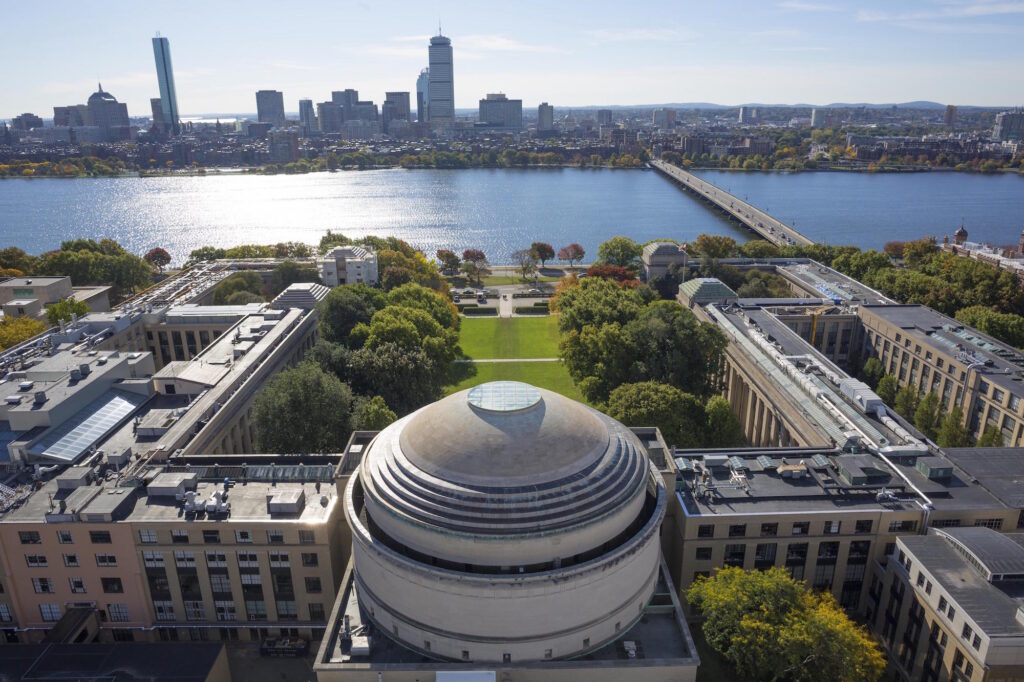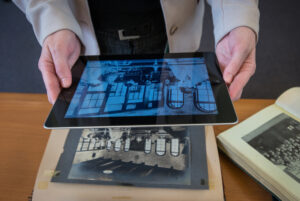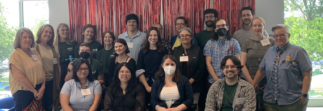 This fall, the Task Force on the Future of Libraries shares with the community its report, the culmination of a yearlong conversation across the Institute. Representing not only recommendations for the MIT Libraries but an aspirational framework for libraries in general, the report reflects many of the defining values of MIT—openness, daring, a willingness to take on the big problems by realizing the promise of technology.
This fall, the Task Force on the Future of Libraries shares with the community its report, the culmination of a yearlong conversation across the Institute. Representing not only recommendations for the MIT Libraries but an aspirational framework for libraries in general, the report reflects many of the defining values of MIT—openness, daring, a willingness to take on the big problems by realizing the promise of technology.
“The task force spent significant time imagining the kind of library that is needed at an institution that aims to invent the future and to improve the world,” says Director Chris Bourg.
Inspired by President Reif’s call to bring MIT’s power to bear on the world’s greatest challenges, the task force saw the impact of the research library as extending far beyond the campus community.
“This task force report’s overarching recommendation is that the MIT Libraries embrace and accelerate its transformation from a local portal to a global platform,” says Bruce Tidor, professor of Biological Engineering and Computer Science and co-chair of the task force.
This shift in perspective is reflected in a set of ten recommendations, outlining a future in which the MIT Libraries provide a foundation for the entire lifecycle of information for collaborative global research and education.
“The world needs models for a radically more open, equitable, and productive information landscape,” says Bourg. “This is an opportunity for MIT to lead the way, as it has so many times before.”

The Big Ideas
The task force seeks to define both what libraries are and what they can be through the following bold and innovative recommendations.
The MIT Libraries should:
- Be a global library serving a global university and its audiences
- Convene a new ad hoc task force to make recommendations regarding the redesign of the MIT Libraries’ physical spaces
- Equip MIT community members with the skills, knowledge, and habits to be critical and responsible consumers and creators of information and knowledge
- Serve as a trusted vehicle for disseminating MIT research to the world
- Provide comprehensive digital access to content in our collections or content needed by MIT’s global community
- Generate open, interoperable content platforms that explore new ways of producing, using, sharing, and preserving knowledge
- Convene a new ad hoc task force on Open Access to review the current MIT Faculty Open Access Policy and its implementation
- Serve as a durable, trusted repository for research objects produced at MIT while continuing to serve as the “Institute’s memory” through archival programs and practices
- Actively engage with, and in many cases lead, efforts to develop viable models and systems for the long-term stewardship and preservation of digital research
- Establish an Initiative for Research in Information Sciences and Scholarly Communication to serve as a hub for best-in-class research on the grand challenges in information science and scholarly communication
To read the full report, visit future-of-libraries.mit.edu


